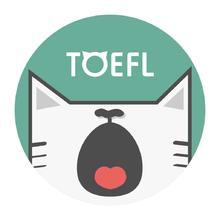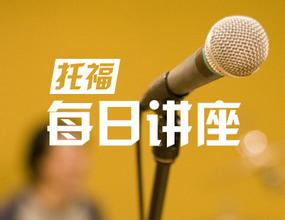 返回
教育头条
返回
教育头条

托福听写练习题分析 托福阅读
下面小编跟大家一起了解托福听写练习题分析,希望对大家的学习有所帮助。
Narrator: Listen to a conversation between a student and her biology professor.
Professor: So I heard that your field work group ended up camping a few days longer than expected.
Student: Yeah, the bus broke down. It gave us time to gather more specimens from the lake to study in the lab, but unfortunately, it meant missing a day of classes, including the class when you described the requirements for the paper.
Professor: That brings back memories from my undergraduate days. So uh anyway, what I'm looking for is an ecological situation in which the solution causes a much greater problem than the original problem it was intended to solve. The example I gave in class was about cane toads in Australia. They were imported there in 1935 to control the grey-backed cane beetles that were destroying the sugarcane crop.
Student: And what, their plan backfired?
Professor: Yep, it's a classic case of biological control gone awry. The toads ate some beetles, but they alsoate many other animals, and they're poison. And being an imported species, they had no natural predators.
Student: Not good.
Professor: Definitely not. Even worse, the toads had no effect on grey-back cane beetle populations either. So tell me, what do you have in mind for your paper.
Student: Well, I got the idea from a radio interview I heard. It was with an ecologist who claims that the greatest threat to the greatest number of species in the next 25 years is not global warming, as one would expect, but the cultivation of oil palm trees.
Professor: Ah yes, there's been a lot of talk recently about whether oil palm plantations are harmful to biodiversity. Some areas report losing as much as 80% of the native bird and butterfly population. And the oil palm is being cultivated in so many places in the world now.
Student: Everybody thought it was a sure winner. It made a lot of sense both economically and environmentally. Here's a crop that's in high demand, easy to grow, and won't disrupt the ecosystem.

Professor: Or so they thought,it's a good topic.
Student: So… am I right that the paper should be divided into two sections?
Professor: Yes, in the first section you describe the practice, the history of where and how it was implemented,the degree to which it has been successful, and why and how it has become a conservation problem, or a potential problem.
Student: Right, and the second part is about how to develop a suitable policy to deal with the problem?
Professor: Exactly. The second section should also include the pros and cons associated with oil palm cultivation. I'm interested to see what you come up with.
Student: You mean because it's not all bad?
Professor: Right. Oil from the oil palm happens to be very useful. It's in so many products from food to alternative fuel. And some of the communities in the regions where the crop was introduced have really flourished. There's a lot to consider. It's definitely not a clear cut situation.
Narrator: Listen to a conversation between a student and her biology professor.
Professor: So I heard that your field work group ended up camping a few days longer than expected.
Student: Yeah, the bus broke down. It gave us time to gather more specimens from the lake to study in the lab, but unfortunately, it meant missing a day of classes, including the class when you described the requirements for the paper.
Professor: That brings back memories from my undergraduate days. So uh anyway, what I'm looking for is an ecological situation in which the solution causes a much greater problem than the original problem it was intended to solve. The example I gave in class was about cane toads in Australia. They were imported there in 1935 to control the grey-backed cane beetles that were destroying the sugarcane crop.
Student: And what, their plan backfired?
Professor: Yep, it's a classic case of biological control gone awry. The toads ate some beetles, but they alsoate many other animals, and they're poison. And being an imported species, they had no natural predators.
Student: Not good.
Professor: Definitely not. Even worse, the toads had no effect on grey-back cane beetle populations either. So tell me, what do you have in mind for your paper.
Student: Well, I got the idea from a radio interview I heard. It was with an ecologist who claims that the greatest threat to the greatest number of species in the next 25 years is not global warming, as one would expect, but the cultivation of oil palm trees.
Professor: Ah yes, there's been a lot of talk recently about whether oil palm plantations are harmful to biodiversity. Some areas report losing as much as 80% of the native bird and butterfly population. And the oil palm is being cultivated in so many places in the world now.
Student: Everybody thought it was a sure winner. It made a lot of sense both economically and environmentally. Here's a crop that's in high demand, easy to grow, and won't disrupt the ecosystem.

Professor: Or so they thought,it's a good topic.
Student: So… am I right that the paper should be divided into two sections?
Professor: Yes, in the first section you describe the practice, the history of where and how it was implemented,the degree to which it has been successful, and why and how it has become a conservation problem, or a potential problem.
Student: Right, and the second part is about how to develop a suitable policy to deal with the problem?
Professor: Exactly. The second section should also include the pros and cons associated with oil palm cultivation. I'm interested to see what you come up with.
Student: You mean because it's not all bad?
Professor: Right. Oil from the oil palm happens to be very useful. It's in so many products from food to alternative fuel. And some of the communities in the regions where the crop was introduced have really flourished. There's a lot to consider. It's definitely not a clear cut situation.
以上就是教育宝头条带来的详细介绍,想要查看更多托福资讯,敬请关注教育宝头条,也可以加我微信18560125702,我会解答你的学习问题。返回教育宝头条
【免责声明】本文仅代表作者本人观点,与教育宝无关。教育宝对文中陈述、观点判断保持中立,不对所包含内容的准确性、可靠性或完整性提供任何保证。请读者仅作参考,特此声明!





